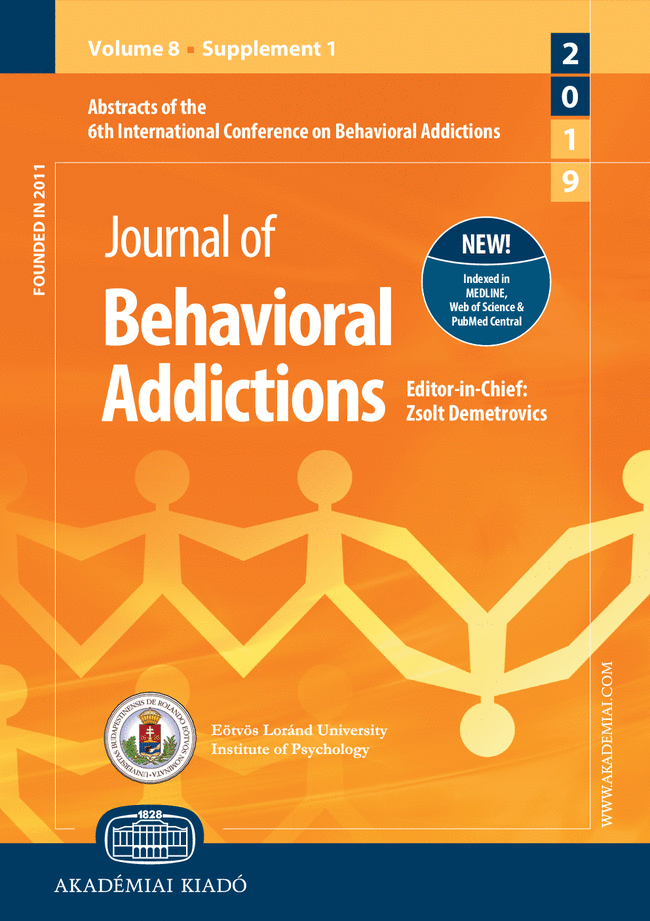Relationships between addictive Facebook use, depressiveness, insomnia, and positive mental health in an inpatient sample: A German longitudinal study
Relationships between addictive Facebook use, depressiveness, insomnia, and positive mental health in an inpatient sample: A German longitudinal study
Author(s): Julia Brailovskaia, Elke Rohmann, Hans-Werner Bierhoff, Jürgen Margraf, Volker KöllnerSubject(s): Behaviorism
Published by: Akadémiai Kiadó
Keywords: addictive Facebook use; duration of daily Facebook use; depressiveness; insomnia; positive menta health; longitudinal study
Summary/Abstract: Background and aims. Individuals with high level of negative mental health often tend to use the social platform Facebook to escape from daily stress. They are at risk to develop an emotional bond to Facebook linked to a need to stay permanently online. The current work investigated addictive use of Facebook and its conceptual framework in clinical context. Methods. In a longitudinal study design, duration of daily use of Facebook, addictive Facebook use, depressiveness, insomnia, and positive mental health (PMH) were assessed in a sample of 349 inpatients [Mage (SDage) = 50.13 (9.41)] of a psychosomatic rehabilitation clinic in Germany over a period of on average 6 weeks. Results. Regression analyses revealed that duration of daily Facebook use at the first measurement time point (T1) served as significant positive predictor of addictive Facebook use at the second measurement time point (T2). Addictive Facebook use (T1) significantly positively predicted depressiveness and insomnia (T2). Its prediction of PMH (T2) was significantly negative. Mediation analyses showed that PMH (T1) partially mediated the association between addictive Facebook use (T1) and depressiveness (T2), and fully mediated the relationship between addictive Facebook use (T1) and insomnia (T2). Discussion and conclusions. Current longitudinal results indicate that addictive Facebook use might negatively impact the recovery process of inpatients. Thus, it might be relevant to assess and consider addictive Facebook use in the clinical context. Therapeutic interventions are suggested to focus on the enhancement of inpatients’ PMH level, which may buffer the negative effect of problematic Facebook use.
Journal: Journal of Behavioral Addictions
- Issue Year: 8/2019
- Issue No: 4
- Page Range: 703-713
- Page Count: 11
- Language: English

